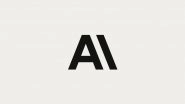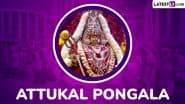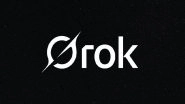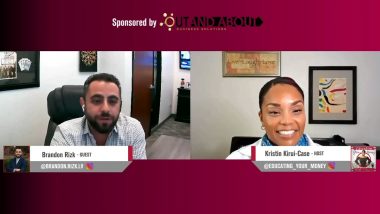Kristin Kirui-Case is the creator and host of Educating Your Money Podcast. She is also the Owner of MattNik Bookkeeping and Tax Solutions. Over the years, Kristin has helped her clients understand their financial numbers to be prepared to make the big decisions in their businesses. The Educating Your Money Podcast was created from these experiences, and it has been sponsored by Out And About Business Solutions.
Business Owners work hard to build their businesses, and then one of the next steps that they like to do is to buy a home, but they don't know where to start being a self-employed individual. Obviously, things are different a little bit when we're talking about a W-2 versus a self-employed individual.
So one of the most asked questions Kristin gets is how does a self-employed business owner get a mortgage?
Brandon Rizk, NMLS# 327638, a Mortgage Branch Manager who’s been in the mortgage lending industry since 2002, was a guest on Educating Your Money Podcast for Episode 39: “Home Sweet Business,” where they discussed what Mortgage Lenders are looking for from self-employed Business Owners who are looking to buy a home. Brandon was there to answer the questions that most of the business owners or self-employed individuals have when they start planning to buy a house.
“So Brandon, I have clients that come to me all the time with this question, self-employed business owners, asking about buying a home, in general, what information does the bank need when someone is trying to buy a home?” Kristin, the host of Educating Your Money Podcast, asked.
Brandon answered, “Generally, what they want to see is, you know, pay stubs, if you pay yourself, or, you know, if you're an employee somewhere, they're going to want to see 30 days’ worth of pay stubs, your W-2s, for the last two years, or 1099s, whatever you may receive, your K-1 statements if you have a corporation, and then also your two years most recent filed tax returns.
Now, you know, some self-employed people will do a sole proprietorship, so your personal returns will just be enough. But there's a lot of self-employed people that will, you know, have LLC, S-corps or whatever, then you'll need to actually provide the business returns as well as the personal returns. And then, you know, just verification of whatever funds you're putting towards the transaction.
So, you know, generally it's two months of bank statements, you know, whether it'll be personal or business, but when you have a self-employed person they'll want to see personal and business, bank statements, all of that. When you get through partial to the transaction, they're going to also ask for a year-to-date Profit and Loss statement from someone you know, just to measure that their income is still on track from where it was a year ago, you know, the 2020 tax returns were filed, etc. Here we are in August, they're going to want to see something for the year to date as well. Profit and Loss usually.”
Brandon Rizk and Kristin Kirui-Case have also briefly discussed the Bank Statements loan programs and what a business owner or a self-employed individual should expect from these kinds of loans, as well as the difference between Commercial Lending and Residential Lending.
You can watch the full episode on Educating Your Money Podcast YouTube Channel.













 Quickly
Quickly


